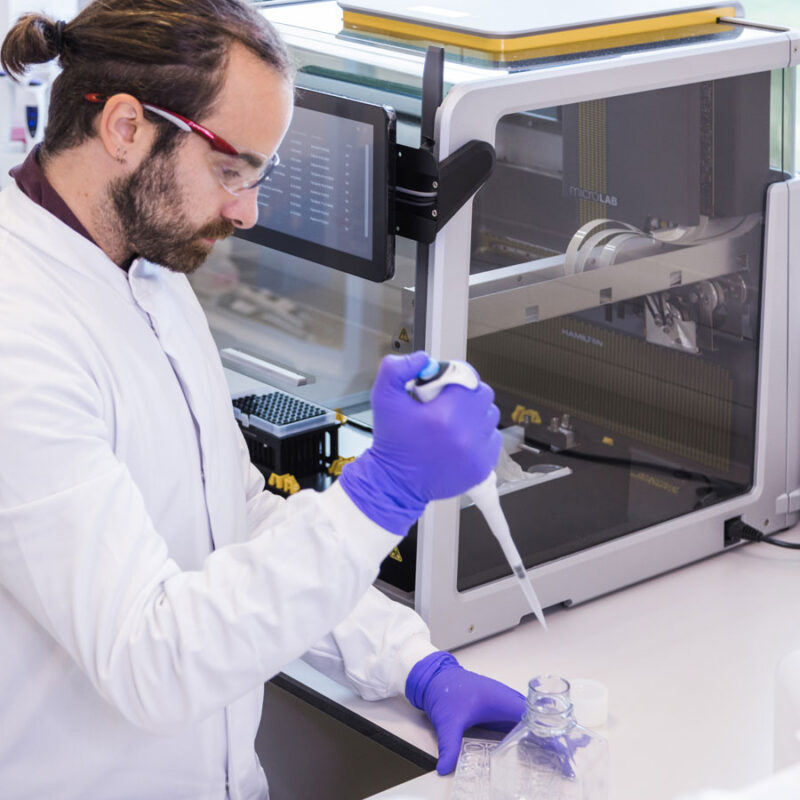Why Abzena?
Our focused approach.
Although the potential for immunogenicity of therapeutic antibodies and proteins has been significantly reduced through the application of protein engineering technologies, clinical data shows that many biopharmaceuticals still induce an immune response in patients. Immunogenicity therefore remains a concern for companies developing new products and for the regulatory agencies asked to approve their use.
Our next-generation EpiScreen® 2.0 platform is Abzena’s innovative answer to these challenges. We utilize flow cytometry technology for precise, multi-dimensional immunogenicity assays. We provide a comprehensive suite of bioassays that predict and evaluate potential risks of preclinical immunogenicity in protein, antibody, and gene therapy therapeutics.

When it comes time to evaluate the immunogenic risk of your biopharmaceutical program, our newly enhanced EpiScreen® 2.0 platform offers a comprehensive suite of assays that can predict, and evaluate potential risks of preclinical immunogenicity in protein, antibody, and gene therapy therapeutics.
To learn more and access our info sheet click the button below.
EpiScreen® 2.0 encompasses a package of assays that allow an accurate and sensitive way to assess the potential immunogenicity of proteins and antibodies ex vivo using a variety of methods such as measuring CD4+ T cell responses, the primary drivers of memory-based immunogenicity or evaluating MHC Class II peptide presentation.